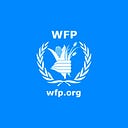A porridge fit for a princess
Goat milk, a source of added nutrition
Katherine McAleer
“A few years ago, using goat’s milk in porridge was a new idea for me”, said Linny Malidade, a mother of five small children and smallholder farmer.
Linny could not afford to buy regular cow’s milk so the milk provided by her goats has been an essential source of added nutrition.
Twenty-nine year old Linny Malidade lives in the Maluwa community of Malawi’s Phalombe District. In 2019, she joined WFP’s Integrated Resilience Programme where she received four goats as part of a ‘pass-on plan’ whereby the offspring are given to the community once weaned.
At the time, her two-and-a-half year old daughter, Princess, was malnourished as a result of food insecurity. “She used to fall sick all the time so I joined care group sessions where I learnt about handwashing and good nutrition,” she said. “With this knowledge, I started a vegetable garden in my backyard too.”
Hear from Linny directly:
Stunting is a sign of chronic malnutrition, and remains high in Malawi at 37%. Stunting cannot be cured but it can be prevented.
Stunting not only affects a child’s health, making them more susceptible to disease and infection, but also impairs their mental and physical development — meaning children who suffer from stunting are less likely to achieve their full height and cognitive potentials as adults.
The negative consequences of undernourishment also have grave effects on the economies represented by an annual loss in potential income due to lower productivity.
WFP’s nutrition-sensitive interventions tackle the underlying causes of malnutrition, which includes a lack of access to dietary diversity, water, sanitation and hygiene (WASH) services. Families are taught to cultivate homestead gardens to boost households’ access to a diversified diet. Small-livestock production can also be introduced with training on animal welfare and breeding.
Linny’s goats aren’t just good for milk, their dung is added to manure, which acts as an effective fertiliser for her backyard garden.
“Nowadays, my backyard garden is a source of vegetables throughout the year and also I have learned how to cook the vegetables so that they do not lose their nutritional values,” said Linny with a proud smile on her face.
WFP’s livelihoods programme, with the support of its development partners (USA, United Kingdom, Germany, Flanders and Switzerland), aims to improve vulnerable people’s ability to adapt to climate change through various interventions.
The programme is comprised of several components seeking to support food and nutrition insecure farming communities. Key components of the livelihoods package include food assistance for assets (FFA), participatory integrated climate services for agriculture (PICSA), Village Savings and Loans, farmers insurance against shocks and smallholder agriculture market support (SAMS).
Read more about WFP’s work in Malawi
